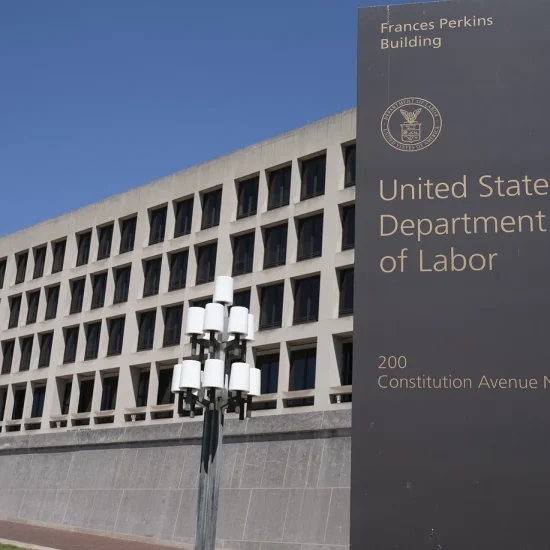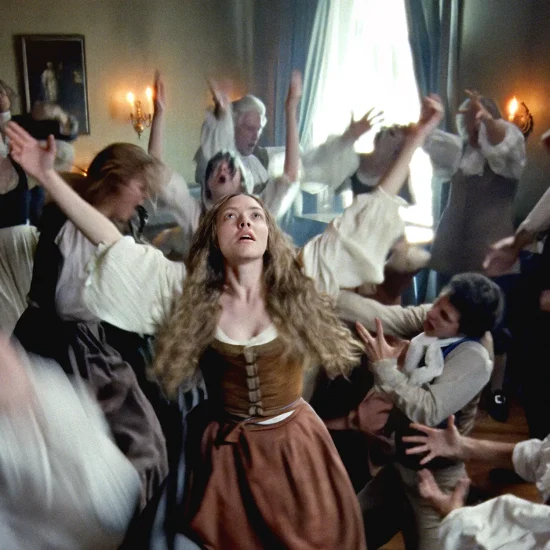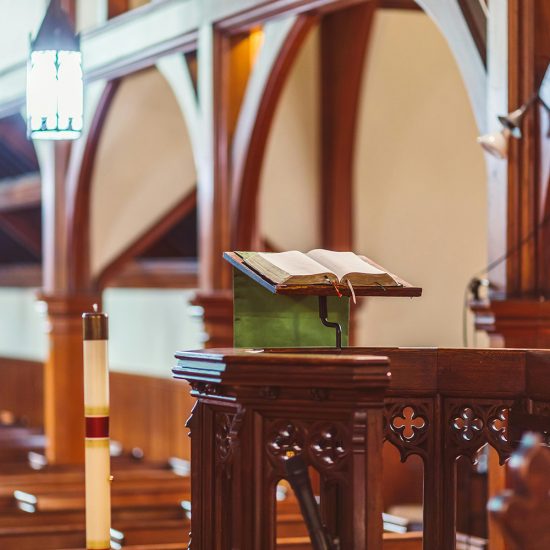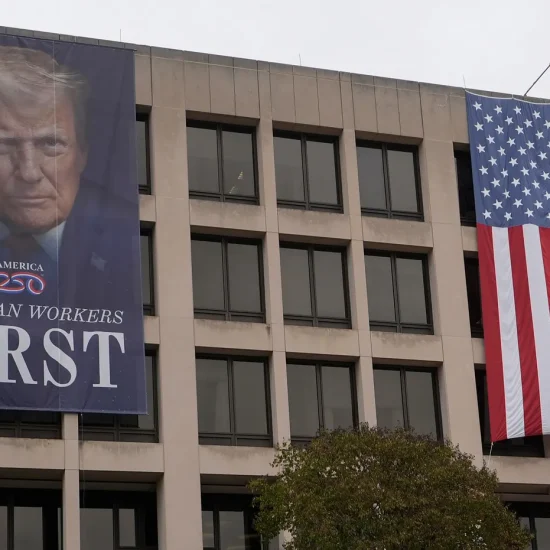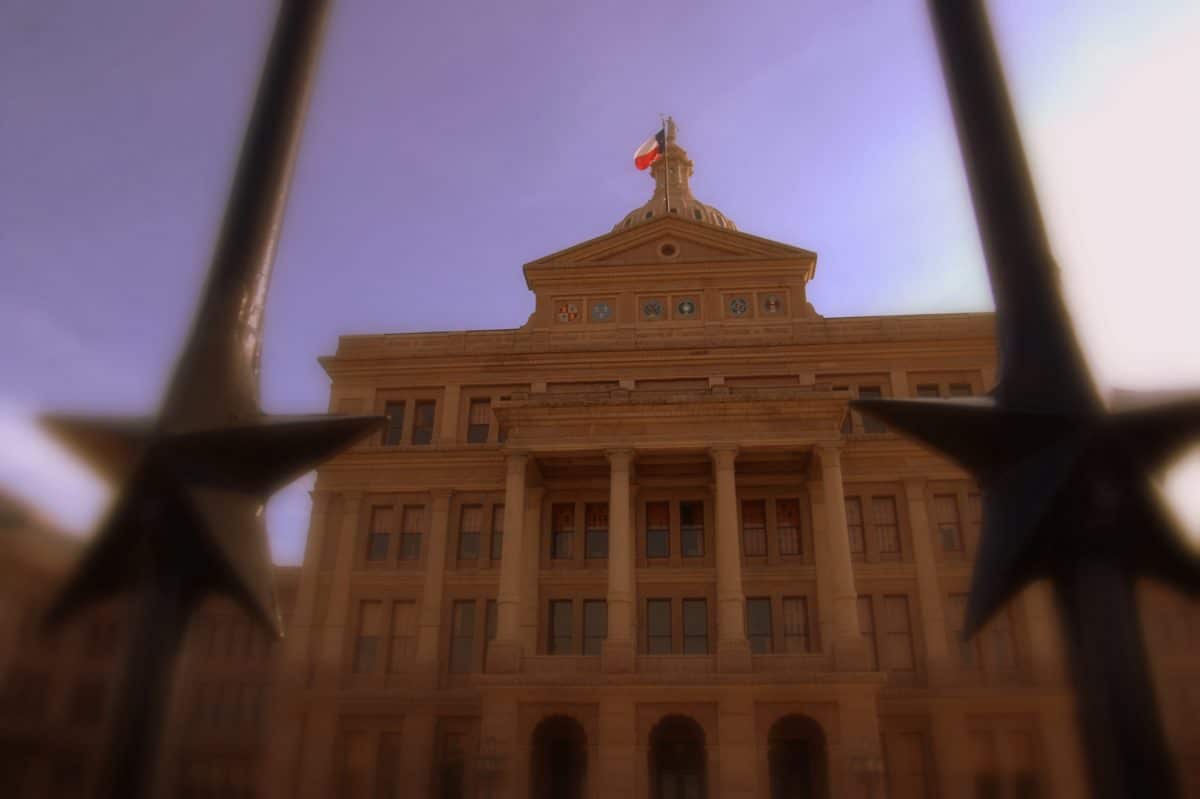
“I want (a preacher) to read the Bible for two hours every night, and then we’ll drink and watch the girls dance.”
That was the “church planting” goal of Jerry Colombo, a shady (now deceased) figure most famous for participating in the “McMillion$ scam.” Back in the late 90s, he opened a “worship center” that doubled as an adult entertainment venue called The Church of Fuzzy Bunny’s in Ladson, South Carolina.
While his business idea and the opposition it sparked from area residents garnered wide attention, local leaders thought his motives were less than pure. Most saw this gimmick as just a profane attempt to skirt zoning laws that prevented the adult business on the property that also wasn’t up to code.
“I closed one of his [businesses] down,” a lawyer for the county explained. “In retaliation, I thought, he bought this little place near Summerville and put a (stripper) pole up, and called it a church.”
Christians, quite understandably, don’t appreciate our religion being mocked. We grow angry when the sanctity of worship is abused for blatantly political purposes. But what happens when Christians, perhaps unintentionally, make a mockery of themselves for nakedly political reasons?
Zoning officials put an end to Colombo’s farce in South Carolina. But today (Nov. 2), voters in Texas are likely to enshrine something equally foolish into the state’s constitution. The whole charade is designed to make a statement, but the results for the Church and other faith groups may be severe.
In this issue of A Public Witness, we strip away the arguments about churches and government regulations. And we peek at the consequences that could arise from this proposed Texas ballot initiative that purports to uphold the freedom to worship but actually compromises principles of religious community.
Stripping the Government of Power
During the COVID-19 pandemic, some churches reversed Colombo’s argument, asking governments to treat them like strip clubs. A couple of churches even salaciously rebranded themselves as such joints. We’re not kidding.
After a California judge issued an injunction in November 2020 to protect strip clubs from the stricter rules imposed on restaurants or gyms, at least two conservative pastors upset at COVID health restrictions on churches decided they were leading strip clubs instead.
Jurgen Matthesius, pastor of Awaken Church in San Diego, announced in an Instagram post on Nov. 22: “We decided we are NOW AWAKEN FAMILY FRIENDLY STRIP CLUB! (Where we strip the devil of his hold, power & authority over people’s lives!)” Along with that statement, he included a video that he said was the warm-up to the sermon that day in which two leaders of the church stripped off suit jackets and ties to music and applause.
In similar fashion, Rob McCoy of Godspeak Calvary Chapel in San Diego that day danced onto stage to music at his packed and maskless church, stripping off his tie while his congregants cheered and a few waved money in the air.
“This is insane,” the now tieless McCoy said at the start of his sermon. “We are finished with your tyranny. And we’re going to enjoy Thanksgiving and we’re going to worship God. Open your churches! Go back to church! Open businesses! Take off the masks! Amen.”

Screengrab of Rob McCoy stripping off his tie while dancing to music at the start of his Nov. 22, 2021, sermon at Godspeak Calvary Chapel in San Diego, California. (But we don’t encourage actually viewing the video, especially if small children are nearby.)
Both pastors got their idea from pastor turned politician turned pundit Mike Huckabee. Before “dancing” onto stage, McCoy showed a clip from Fox News where Huckabee said churches should “announce their pastor will remove his tie during the sermon, and therefore he will take off an article of clothing, making it a temporary strip club so that people will be able to go to church.”
“I don’t have a lot of experience with strip clubs,” Huckabee added. “I do have quite a bit of experience with churches … and I would think it’s ridiculous to say that people are safer in a strip club than they are at church.”
Unlike Huckabee, we don’t have any experience with strip clubs. But we suspect they don’t include some of the obvious COVID risk factors found in churches. For example, we doubt strip clubs feature large choirs. Additionally, many churches pack in significantly larger crowds than strip clubs (praise God).
During the pandemic, we’ve seen other churches also fight public health rules. As we noted last week, some even sued to demand special privileges not afforded to similar mass gatherings. For some, these legal and political battles paid off in court settlements. And for some churches, the publicity of fighting the regulations even attracted larger maskless crowds, as occurred for one of the striptease churches as conservative activists came to guest “preach” this gospel of freedom.
This activism naturally spilled over into state Capitols across the country. As legislative debates intensified back in February, Kelsey Dallas of the Deseret News reported on about 50 bills in more than 20 states that would limit government officials from enacting health rules impacting houses of worship. And some passed, such as in Arkansas, Indiana, and North Dakota. Similar efforts failed in several other states, including in Missouri where one of us (Brian) testified against multiple such bills in House and Senate hearings to warn against the creation of a “pandemic privilege for religion” (we presume his testimony was key to the bills’ demise).
But the controversial efforts continue, which brings us to the Lone Star State.
Like a Whole Other Country
Earlier this year, Texas lawmakers approved a bill preventing government officials from issuing “an order that closes or has the effect of closing places of worship” during a declared state of disaster. Gov. Greg Abbott signed the law in June.
But apparently that wasn’t enough since everything’s bigger in Texas. Lawmakers also passed a bill authored by State Sen. Kelly Hancock, a member of a Southern Baptist church in Southlake, to create a constitutional amendment blocking pretty much any limit on religious worship. Voters in Texas now head to the polls to decide the fate of that proposed change as they vote on Proposition 3.
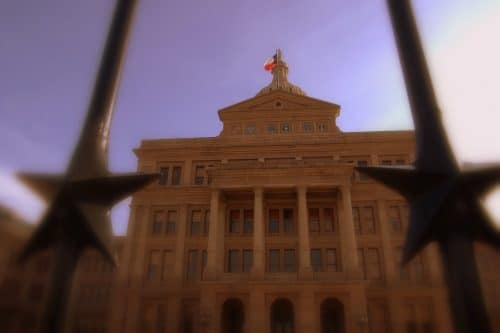
Texas State Capitol. (Stuart Seeger/Creative Commons)
If approved — as pretty much everyone expects — Proposition 3 would add this new language to the state constitution:
This state or a political subdivision of this state may not enact, adopt, or issue a statute, order, proclamation, decision, or rule that prohibits or limits religious services, including religious services conducted in churches, congregations, and places of worship, in this state by a religious organization established to support and serve the propagation of a sincerely held religious belief.
Like other legislation, this amendment could make it harder to keep people safe if another pandemic strikes. But its implications extend beyond that in two significant ways.
First, the language doesn’t actually limit its application to public health or disaster rules. Rather, this amendment would bar any order that limits religious services in any way.
Second, the amendment goes beyond just religious services in houses of worship. The language about this applying to services “including” those “conducted in” houses of worship also implies application to religious services held elsewhere. As long as someone is propagating their sincere beliefs, government officials can’t stop them.
The first problem could open a number of legal conflicts.
- What if a church decides it doesn’t want to follow the occupancy limits? Or what if a church wanted to stay open without proper fire exits or by meeting in an otherwise condemned property? Could a fire marshal or other official enforce that since it would limit the religious service?
- What if a governor wanted to issue an evacuation order for a hurricane or wildfire? Could that be enforced at a house of worship holding services for people who decided to put “faith over fear” as the building is about to burn down?
The second issue similarly could create problems:
- What if a group decided to hold a protest but couldn’t get a permit so they instead rebranded their event in a public space as a religious service? Could police charges stick for unlawful assembly or would the officials instead find themselves settling an expensive lawsuit for having shut down a protected church service?
- What if someone’s home church grew well beyond zoning rules as dozens of people parked on your street and held loud outdoor worship early in the morning before you normally woke up? Could you find relief or would this be protected as a religious service that can’t be limited?
- What if someone wanted to open satellite campuses of The Church of the Fuzzy Bunny’s in Odessa or San Antonio or Galveston? Could local authorities find themselves powerless to stop the hybrid strip club/church from holding its “worship services.”
We could play out more of these scenarios, but we’re also confident there are some we (and others) haven’t yet considered. The language of Proposition 3 remains so broad that it could quickly grow to tie the hands of government officials in a number of situations where they would otherwise protect the health, safety, or wellness of the public.
Get cutting-edge analysis and commentary like this in your inbox every week by subscribing today!
Don’t Mess with Christ’s Church
Our suspicion is that the writers and advocates of this constitutional amendment failed to think through the consequences. Rather than writing a serious piece of policy to address a real need, this is a vehicle to send a political message about pandemic frustrations. But just like bad cases make bad laws, badly-written laws create bad outcomes.
This is the danger of focusing more on politics than policy. Fleeting popularity or momentary outrage should not be enshrined in constitutions. Besides, from the First Amendment’s free exercise protections to other legislation passed at federal and state levels (like the Texas Religious Freedom Restoration Act), the ability of churches to worship as they please is hardly under threat. Unusual limitations necessitated by a once-in-a-century pandemic are the exception and not the rule.
As noted by activists who care about religious liberty for all, plenty of legal protections for religious services already exist. David Marcus, a representative of the El Paso Chapter of Americans United for Separation of Church and State, wrote in El Paso Matters last month as he urged votes against Proposition 3 that churches are already protected but in ways that also balance other community rights and needs.
“Federal and state laws already protect the right of houses of worship to hold religious services,” Marcus explained. “Under the U.S. and Texas constitutions, the government can place limits on religious activities in emergency situations so long as such limitations are neutral and generally applicable or ‘narrowly tailored’ to serve a ‘compelling’ state interest. A constitutional amendment is not necessary, and would be cumbersome and time-consuming to undo — with catastrophic results a real possibility in the meantime.”
The right to worship is already guaranteed in Texas and across the United States. But that doesn’t mean someone can do whatever they want in the name of their religion. Just like free speech rights are limited as you can’t yell “fire!” in a crowded theater (unless there actually is a fire), you can’t sacrifice young children as part of your sincerely-held religious beliefs (unless you claim a vaccination exemption). Respecting religious freedom doesn’t mean a pastor or church can do whatever they want.
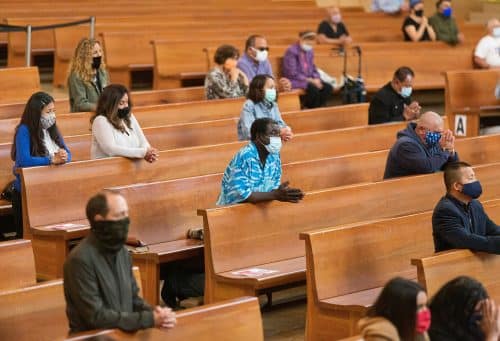
Masked congregants kneel and observe social distancing during a service at Cathedral of Our Lady of the Angels in Los Angeles, California, on June 7, 2020. (Damian Dovarganes/Associated Press)
These legal questions are important to consider, but of greater value to Christians is the damage such measures like Proposition 3 inflict on the Church’s witness. Given the perception, often based on good evidence, that proponents of these measures are motivated by their Christian beliefs, such campaigns and their consequences cast the entire Body of Christ in a negative light and drive people away from Christianity.
Amanda Tyler, executive director for the Baptist Joint Committee and native Texan, told Religion News Service that legislation like Proposition 3 sends “a damaging message that religious people are more concerned about special treatment than they are about the good of their communities.” She added, “I would hope that the voters of Texas would understand the strong protections for free exercise that they already enjoy and understand that this extra provision in the Constitution is unnecessary, over broad, and could actually jeopardize the health and safety of their communities.”
It’s a sad irony that the actions of those claiming to care about the integrity of Christian worship end up undermining the Church’s work and witness in ways that also harm the broader body politic. The misguided attempt in Texas to place faith communities above all else will inevitably drive people away from churches because of the prominent association created between extreme political actions and a narrow set of religious beliefs claimed to be representative of Christianity.
Help sustain the ministry of Word&Way by subscribing to A Public Witness!
Biblical Purity
We regularly warn about the dangers emanating from Christian Nationalism. Tying together the church and the state in this triumphal way distorts both entities, lending sacredness to a human configuration and conveniently ignoring the countercultural, empire-challenging realities of Jesus’s ministry. Secular governments should not be baptized as doing holy work that escapes human accountability.
One consequence of such an ideology are efforts to put religion beyond the reach of human control. Churches and other houses of worship fulfill their sacred duties within real-world contexts. Whatever privileges they enjoy should not release them from building codes, labor laws, and other generally-applicable statutes. Requiring churches to undergo fire safety inspections or ministers to be mandatory reporters of suspected child abuse demonstrate both the wisdom and acceptance of this idea. As does expecting religious gatherings to follow the pandemic health measures of other mass gatherings since a virus like COVID isn’t scared away by hymns or religious imagery.
Arguing against both conflation and exaltation of churches vis-a-vis the state leaves us only one option: biblical humility. Seeking neither to do the government’s bidding nor to be divorced from its dictates, the Church is left to be faithful in its ministry by simultaneously practicing good citizenship and witnessing to its alternative values that challenge the powers and principalities that be.
Such humbleness is rooted in the story of scripture. While lots of Christians love to hang reminders of Jeremiah 29:11 (“For I know the plans I have for you says the Lord…”), few recognize that the “you” here is not singular but plural. It refers to the experience of Israelites in Babylon and God’s assurance that their separation from the promised land will not last forever. The Lord will give them “hope and a future.”
And if we read the verse in context, we find out more about what that plan means for the broader community. Their calling is to “seek the peace and prosperity of the city to which I have carried you into exile. Pray to the Lord for it, because if it prospers, you too will prosper” (29:7). While set apart for God’s purposes, they are not to be absent from the particularities of their place. By helping their community flourish, they too will thrive as God intends.
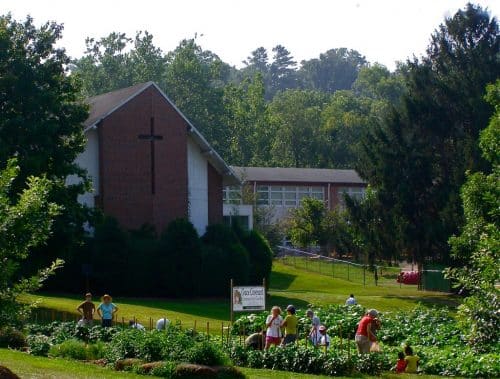
People work in a community garden at Grace Covenant Presbyterian Church in Asheville, North Carolina. (Melinda Young Stuart/Creative Commons)
The New Testament makes a similar argument. Paul told the early Christians in Philippi, “Do nothing out of selfish ambition or vain conceit. Rather, in humility value others above yourselves, not looking to your own interests but each of you to the interests of the others” (Philippians 2:3-4). The mark of real Christian community — remember, that letter was written not to individuals but to a church — was the willingness to put the well-being of others before their own.
The problem with what’s unfolding in Texas today, and what’s been on display around the country throughout the pandemic, is the triumph of individual rights over community needs. From mask-wearing to shutdown orders, those screaming the loudest are the ones most unwilling to consider how their actions impact the welfare of others. We can’t love our neighbors if we only think about ourselves.
The Lone Star State is about to enshrine this principle into its own constitution. When the next pandemic strikes or a disaster comes, churches can keep on operating regardless of how their actions impact everyone else. Whatever they are doing, the worship of those availing themselves of these “protections” will be far from biblical. If we’re not careful, people might even start driving by our churches with the kind of suspicion now reserved for passing by those shady joints with the neon signs that falsely promise a good time.
As a public witness,
Brian Kaylor & Beau Underwood


